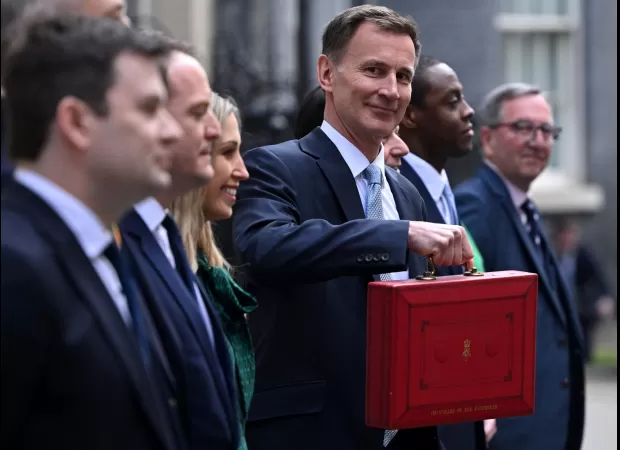Gas prices will remain the same for another year as fuel duty is not being increased.
Chancellor Hunt extends 5p fuel duty cut in Spring Budget 2024.

In a highly anticipated announcement, Chancellor Jeremy Hunt declared that fuel duty will remain unchanged for the upcoming year. This decision comes after the temporary 5p cut in 2022, which was extended in last year's budget. As a result, drivers will continue to pay 52.95p per litre of petrol and diesel at the fuel pumps.
Hunt made the announcement during his annual budget speech in front of the House of Commons at 12:30 pm. This means that the tax on fuels, such as petrol and diesel, will not see any rise or fall in its current rate. The Chancellor explained, "Many families and sole traders rely on their cars, and if no action is taken, fuel duty would have increased by 13% this month. Therefore, I have made the decision to maintain the 5p cut and freeze the duty for another 12 months."
This decision is expected to have a significant impact on the average car driver, who will save around £50 next year. Since the introduction of the 5p cut, drivers have already saved a total of £200. Furthermore, the Social Market Foundation think tank estimates that this measure will also benefit the lowest earners in the country, who will save £22, while the wealthiest individuals, who tend to own more cars, will save £60 per year.
Prior to the 5p cut in 2022, fuel duty had remained at 57.95 since 2011, when it was introduced as a temporary measure. This has resulted in a reduction of £100 billion in tax intake during that time, according to the SMF. Continuing this freeze will cost the Treasury an additional £5 billion in potential revenue annually.
As the Chancellor left 11 Downing Street to present the government's annual budget to Parliament, he was seen holding the iconic red Budget Box. The pressure was on for Hunt to extend the 5p cut in an effort to ease the burden of rising fuel prices and provide some relief for people's finances. The cost of owning a car has become increasingly expensive due to high fuel costs.
While prices have slightly decreased from their peak in July 2022, they are still significantly higher compared to February 2016. According to the RAC Foundation, a transport policy and research organization, petrol prices were 87% higher, and diesel prices were 97% higher during that period.
It is evident that changes in taxation can have a significant impact on the price of fuel at the pump. This is why road transport industry leaders, including the AA and Logistics UK, have called on the government to maintain the 5p per litre cut that was introduced in 2022 when Rishi Sunak was Chancellor. This temporary measure was implemented after Russia's invasion of Ukraine, which caused a surge in global oil prices. As a result, the rate of fuel duty for petrol, diesel, biodiesel, and bioethanol was reduced to 52.95p per litre, where it remains today. Other fuels, such as liquefied petroleum gas, biogas, and fuel oil, are taxed at different rates.
4 Views






